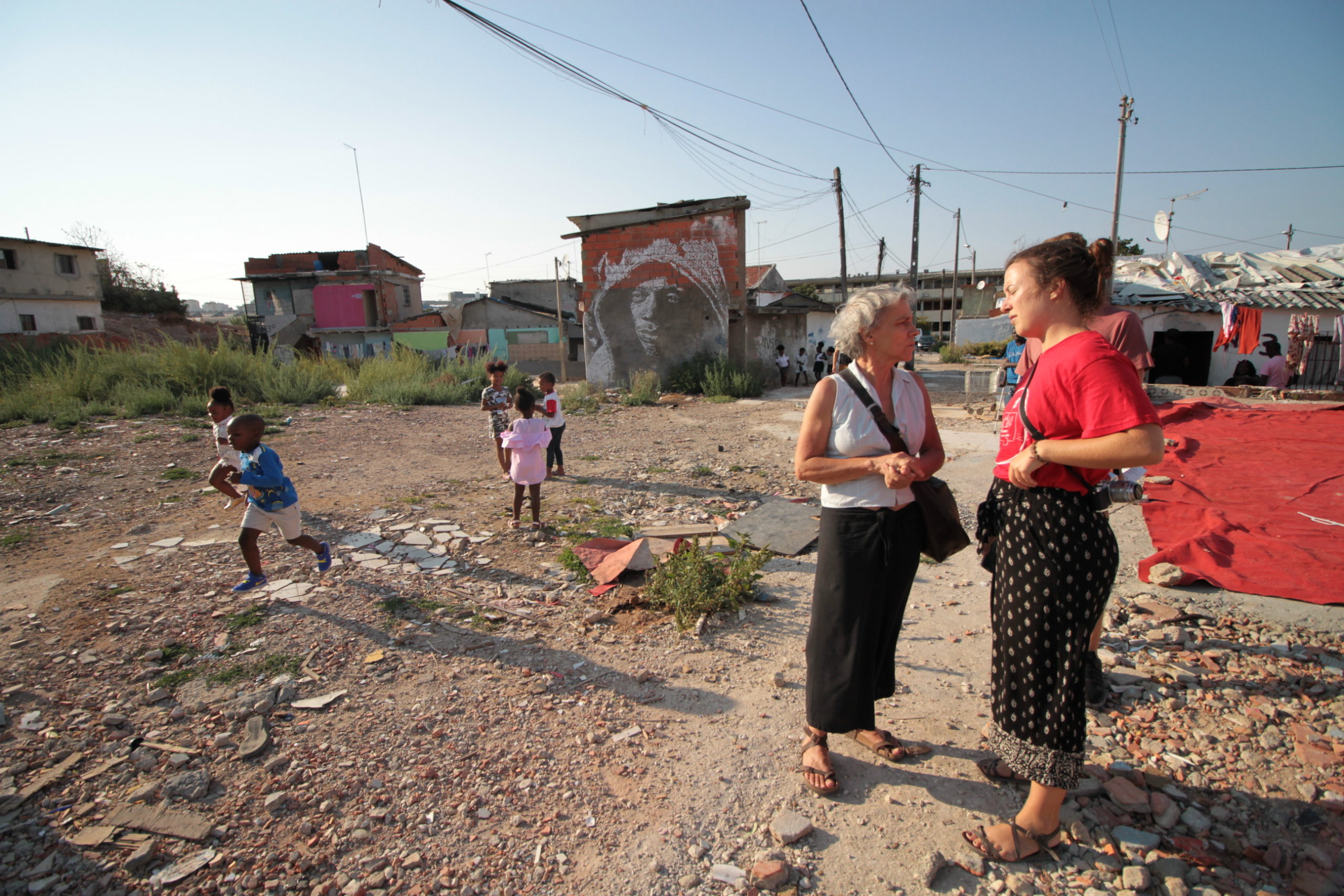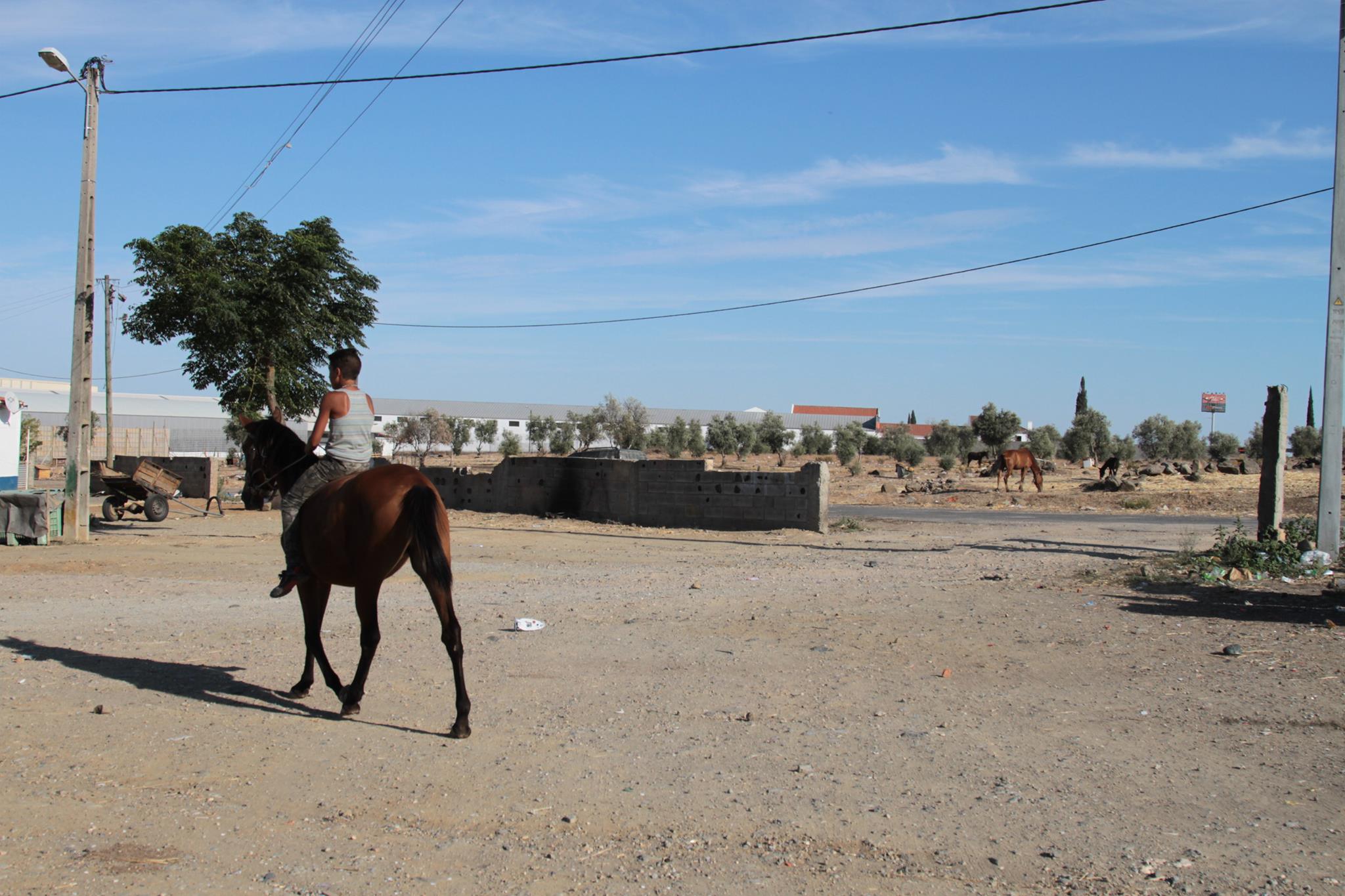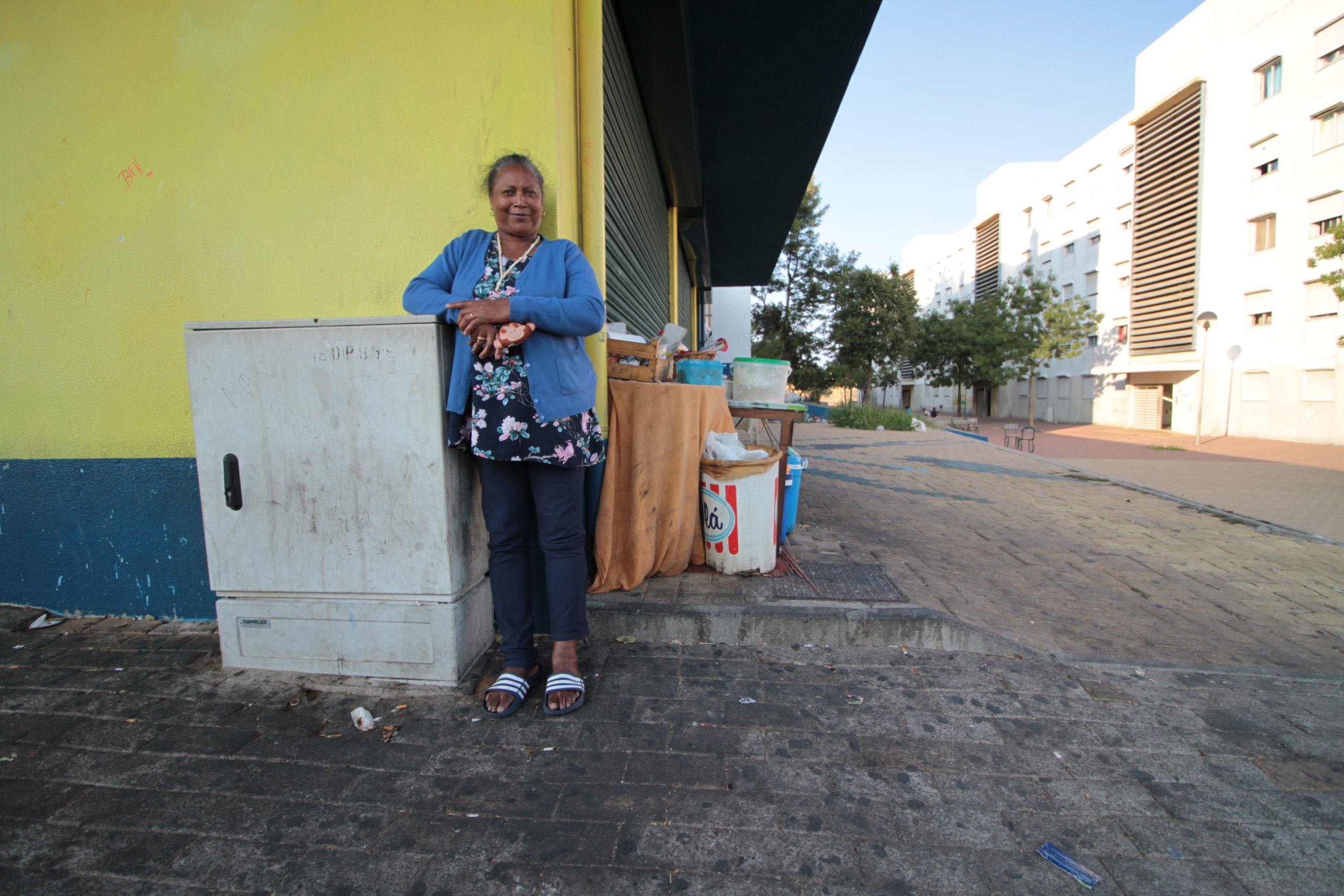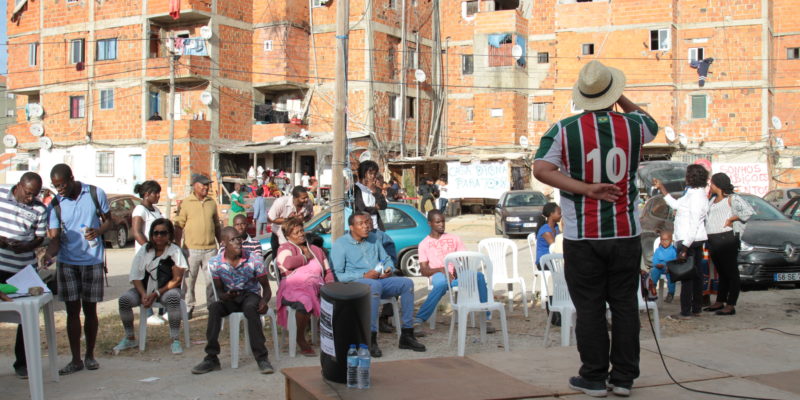The news that the Portuguese government, through a “despacho” – that is a government order – on March 27th, has extended a series of benefits to migrants waiting for regularisation in response to the coronavirus pandemic, has travelled around the world. The decision of the government led by António Costa has strengthened the forward-thinking image of the country, cherished by a bewildered European left, which is torn between antithetical approaches to the migration phenomenon.
But even if thousands of people, amongst the most precarious and vulnerable in the country, are better protected thanks to the new measures in force until June 30th, “it is untrue to argue that now all irregular migrants will have access to the same rights as citizens”, explains Emellin De Oliveira, with reference to the recent statement by Michelle Bachelet, UN High Commissioner for Human Rights, who commended the decision taken by Portugal.
De Oliveira, lawyer and researcher at the “Nova” University of Lisbon, claims that “not all migrants will have access to these measures, and those who will are not going to have the same rights as citizens”. Other researchers, activists and foreign citizens in Portugal agree that – although this measure is right and confirms to the government’s openness to migration issues – some underlying problems are not being addressed.
“Those who benefit from these measures will be able to have access to welfare or health care services free of charge, a temporary relief before falling back into regular casualisation, while the many who are excluded will become even more outcast and subject to blackmailing” says De Oliveira. “These measures are fragmentary and many will be left behind” states Mamadou Ba, the leading force behind the anti-racist struggles in the country and spokesman of the Sos Racismo (Sos Racism) association.
But what happened in Portugal on March 27th and how has this event affected such a complex situation, in which, amongst others, Portuguese-speaking migrants from the former colonies, asylum-seekers resettled from other countries, Ukraine workers and Nepalese farmworkers come into play?
Those excluded from the ‘despacho’ of March 27th
“At times like these we need to guarantee the rights of the most vulnerable ones, as migrants”, said Eduardo Cabrita, Minister of the Interior, shortly after the publication of the government order. Nine days before, on March 8th, the government declared the state of emergency and adopted a number of restrictions, in order to get ahead of the spread of the virus, which had caused only one death in the country until then.
The ‘despacho’ extended access to health care and welfare provisions to those who, before March 18th, had applied for a residence permit to the Serviço de Estrangeiros e Fronteiras (SEF), the Portuguese border police.
In order to apply for a residence permit for work purposes, it is necessary to have legally entered the country and to have a contract or a promise of employment – as it is the case for many Brazilians who arrived with a 3-month tourist visa and decided to stay longer – or alternatively, for those who have entered the country illegally, evidence of employment and tax payment for at least one year previous to the date of application must be provided.
Those who started the application before March 18th and are in possession of the SEF’s electronic receipt, can now access healthcare free of charge, by paying a few euros for a visit rather than the full price charged to undocumented migrants, which amounts to hundreds of euros for a medical treatment. On top of that, they can apply for unemployment benefits and other social benefits, including income support for families in difficulty due to the pandemic.

Bairro 6 de Maio. Foto di Luca Onesti
Bairro 6 de Maio. Photo credit: Luca Onesti
“We do not have figures, but I estimate that roughly 20-30 thousand people are reached by the order” says Mamadou Ba, who also claims that some 80-100 thousand migrants will be excluded from the order, which is the most evident problem of the new measures.
The activist points out that those excluded are invisible workers, who have no relations with the authorities and are often subject to exploitation, and whose labour is instrumental to the leading sectors of the Portuguese economy, such as the construction industry – which employs Ukrainians and other Eastern European citizens – as much as farming and tourism, which provide employment mostly to citizens from Nepal, Bangladesh, Pakistan and India.
“Farm labour, run by recruiters, a taboo subject in Portugal, also includes those who pick olives and clams, which are important resources for national production; it is usually limited to rural areas, well away from the public eye and the press”, says Emellia De Oliveira.
Whilst, over the last few years, foreigners’ contribution to the economy and society has been acknowledged more in Portugal than in other European countries – to the extent that according to Eurobarometer, in 2018, 77% of Portuguese citizens had a positive perception of immigrant citizens’ integration, compared to a European average of 54% – a substantial part of foreign workers will be excluded from any emergency measures, as they are without employment contracts or will have had one for less than 12 months.
“These people are at the forefront of the response to the pandemic; they ensure home deliveries, transports, food supply, cleaning and domestic care services. This is why we expected bolder action”, stresses Mamadou Ba.
An unprepared bureaucracy
There is another issue, apparently of a technical nature, which poses further challenges to the government order of March 27th and sheds light on some structural aspects of the Portuguese ‘model’.
From 2015 on, the presence of foreign citizens has increased significantly. Key factors of this phenomenon can be found in a growing economy, as much as in the opportunity to be regularised if they find a job, which is lacking in many EU countries.
According to the figures published by the SEF at the beginning of 2020, 580 thousand foreigners reside legally in the country. An increase of 90 thousand people compared to the previous year. Thanks to these people having entering the country, Portugal’s demographic balance turned positive in 2018, for the first time since 2010. Due to the economic recession, almost 600 thousand Portuguese citizens have indeed left the country, and the government’s efforts to attract back the most qualified workers, through the much-debated ‘Regresar’programme, were of little use.
In addition to a growing economic migration scenario, which includes Brazilian and Romanian migrants operating in domestic labour, services and constructions, as well as Italian, French and British pensioners taking advantage of a lower cost of living and citizens from the former colonies Guinea-Bissau, Mozambique and Angola, the number of asylum application has increased, with figures that, nevertheless, remain amongst the lowest in Europe.
While, in 2007, asylum-seekers were roughly 200, they rose to 1750 in 2017, with a slight decrease in the subsequent years. These figures can be associated evenly, over the last few years, to refugees relocated from Greece, Italy, Turkey and other countries, and to the so-called ‘spontaneous arrivals’ mainly of Afghanistan and Pakistani youths, whose applications had been rejected by other EU countries.
“The Mediterranean crisis, the images of boats at the mercy of the waves, produced a wave of solidarity and urged the authorities to accept Syrians, Iraqis and Eritreans who had landed in Italy or Greece” – says Dora Rebelo, psychologist and doctoral researcher in anthropology at the University Institute of Lisbon – “but those who arrive spontaneously and seek asylum are faced with an obstacle course”.
Firstly, there is detention: asylum-seekers, including minors, are detained in several centres, one of which is where, allegedly, three SEF officers killed a Ukrainian detainee, Ihor Homenyuk, on March 12. Secondly, reception conditions – at times inadequate – in overcrowded detention centres and, ultimately, the long procedures of an unprepared bureaucracy, affecting all those who try to get documents in the country.

Beija. Photo credit: Luca Onesti
And this is the another problem revealed by the emergency measures: tens of thousands of people, whether they seek asylum or apply for a residence permit, need to wait months or years before they obtain an appointment at the SEF. So, they find themselves in a semi-legal situation – they cannot be expelled but are not regularised yet – and, at the same time, risk losing the requirements underlying the regularization request.
“Once the application is lodged, the waiting period for the appointment at the SEF is extended up to two years, even though there is limit of 90 days according to law: during this whole period you will not have the right to medical and social care free of charge”, says Emellin De Oliveira. The order has, therefore, granted the rights to those who had already filed the application at the SEF, but the closure of its offices to the public has further shelved and postponed all appointments. The researcher also claims that “if the government doesn’t immediately increase their human resources, we will risk a catastrophe upon reopening”.
On July 1st, date on which the SEF is scheduled to be fully operational again, thousands of people might be risking losing the essential requirement for the regularisation, which is employment. “It is already evident to those working in restaurants and hotels, such as many Asian citizens, who were laid off over the last few weeks”, explains De Oliveira. Those who, thanks to the measures provided for by the order, temporarily benefit from family and unemployment allowances “will then be sent back to precarity, in a situation of economic crisis induced by the effects of the pandemic”.
“While the order could establish a principle of justice, everything will be cut off tragically at the end of June”, concludes De Oliveira, with reference to the figures provided by social security. In 2018, the balance of social security payments of foreign citizens and their use of public services was €651 million, which confirms a growing trend. In short, foreign workers pay more than what they get back from state. Amongst them are those waiting for the fateful appointment.
Mohammed’s limbo
In 2016, when 24-year-old Afghan Mohammed* set off from Germany, Portugal was a “promise, a place that was very well talked about”. His experience over the years to come seems to debunk this myth, widely spread amongst his compatriots.

Casal da Boba. Photo credit: Luca Onesti
In 2015, having fled from Pakistan, where he studied engineering, Mohammed crossed all the borders separating him from Europe, albeit with great difficulty. From Iran to Turkey, to his landing on the Greek Island of Chios, he walked at night across the Balkans headed to Austria and Germany, where he risked being deported after his application for asylum was rejected.
His Portuguese ordeal started at the border with Spain when, after being arrested by SEF officers, was transferred and kept in a detention centre for two months. Almost four years later, he is still waiting for a response to his asylum request, as well as to his application for a work permit, lodged in July 2019 after finding a job in the kitchen of a restaurant in Lisbon, with a salary of €700 per month.
“I was looking forward to my appointment, scheduled for March 31st, when the SEF informed me that everything was on hold and that I would have to call them back in July”, he says in a despondent tone on the phone, from his apartment in Lisbon, which he shares with other compatriots. In the meantime he has lost his job and his economic benefits – which he could claim thanks to the new temporary measures – have been late in coming.
“I had never heard of Portugal back in Afghanistan and now I find myself in this country, where people are friendly, but sometimes I feel like Portuguese authorities themselves are not complying with the laws that have been established, putting you on hold eternally”, says Mohammed, disappointed, speaking of the SEF and terribly afraid of returning to a precarious situation, in case he does not find a new job after July 1st.
Or if – as several civil society organisations are hoping – the government, under these extraordinary circumstances does not seize the opportunity to extend rights to all foreign citizens who, as stated by Mamadou Ba, are instrumental to the key sectors of the Portuguese economy.
“Ever since I first started participating in ant-racist activism, several decades ago, Portuguese civil society was never this resolute and loud; now we keep on making our voice heard, organising grass-roots support networks for those in difficulty and calling for a radical change, a real, permanent regularisation” explains the activist, who from his home in Lisbon leads actions and collects signatures for petitions.
“Since its establishment last year, the government has promised to improve different things and now it’s time for the moment of truth”, concludes Ba, implying that, perhaps, the good news is yet to come.
*Names have been changed for this article
Cover: Sreet gig at Bairro da Jamaica. Photo credit: Luca Onesti









